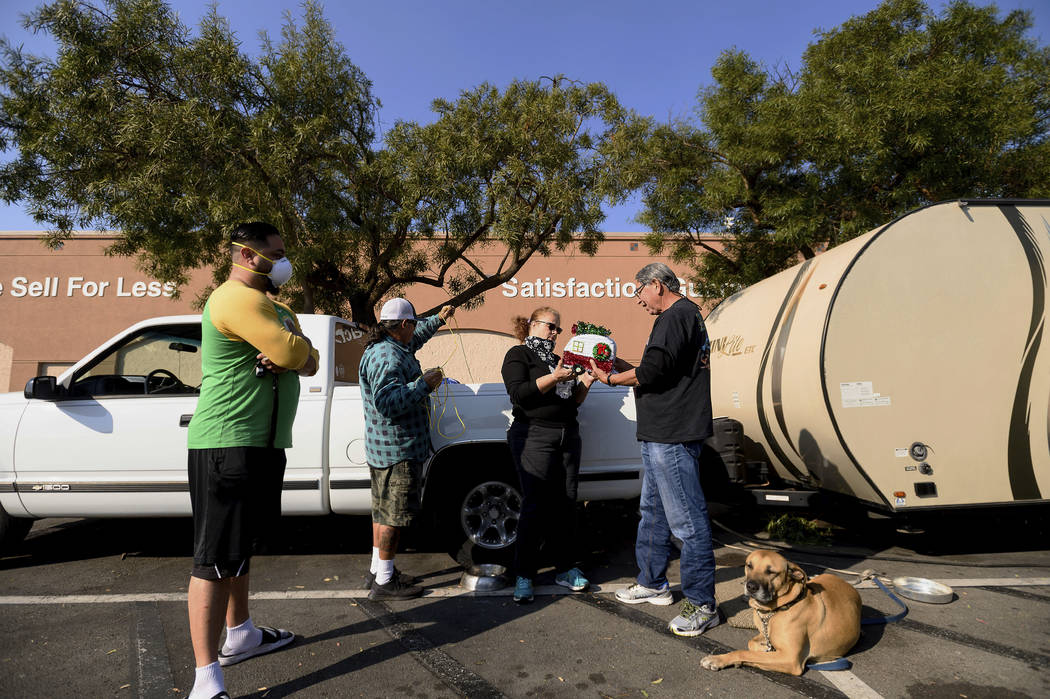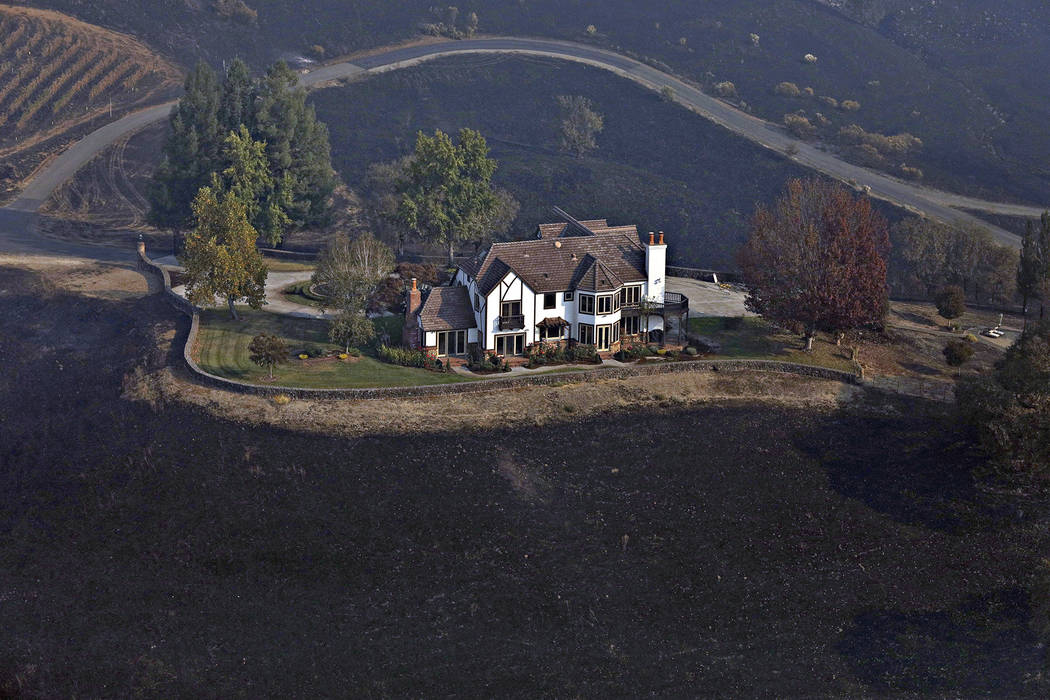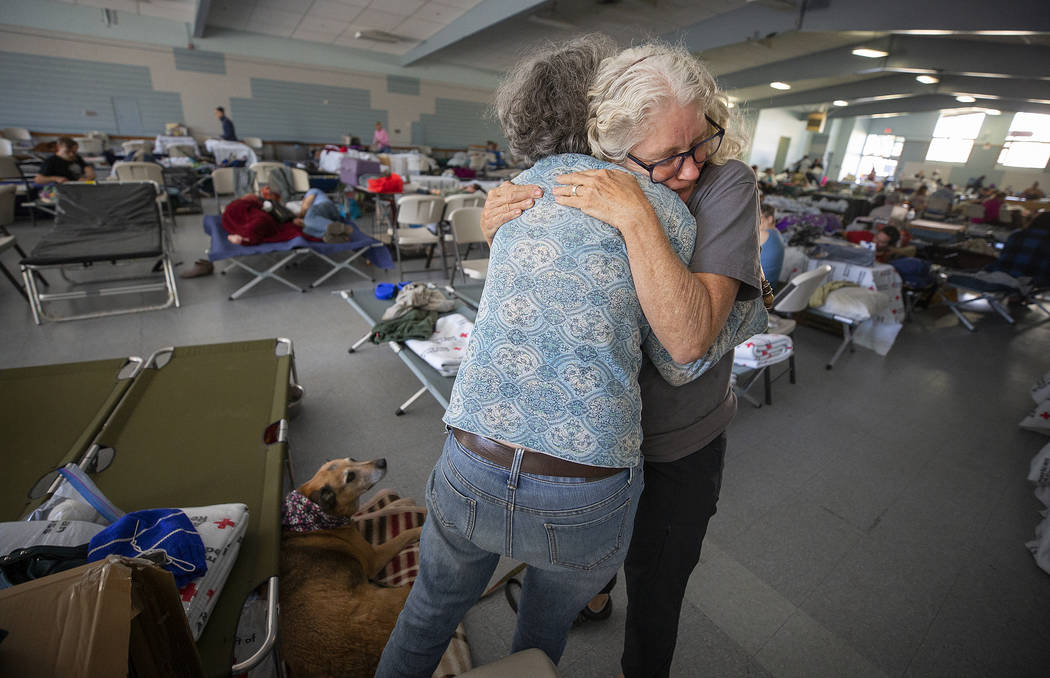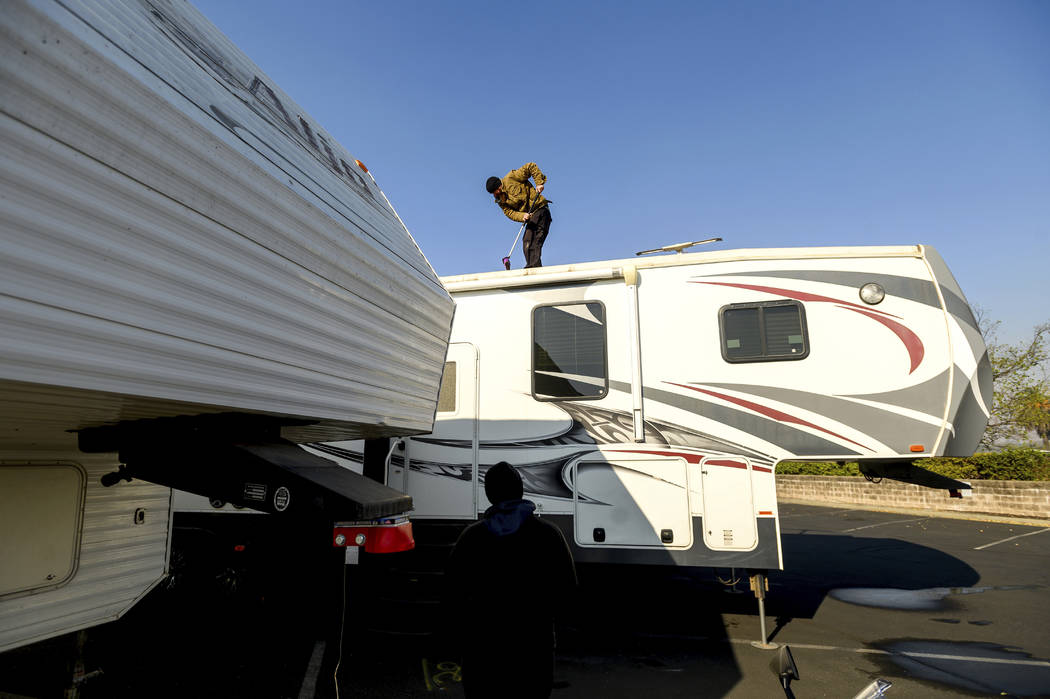Frustration, anger increases over PG&E-imposed blackouts
SAN RAFAEL, Calif. — With no electricity for the fourth straight day Tuesday, chef and caterer Jane Sykes realized she would have to throw out $1,000 worth of food, including trays of brownies, cupcakes and puff pastry.
She also had little hope of getting a good night’s sleep — there was no way to run the machine she relies on to counter her apnea.
“I don’t think PG&E really thought this through,” she lamented.
Frustration and anger mounted across Northern California on Tuesday as the state’s biggest utility, Pacific Gas & Electric, began another round of widespread blackouts aimed at preventing its electrical equipment from sparking wildfires in high winds.
Millions of people have been without power for days as fire crews race to contain two major wind-whipped blazes that have destroyed dozens of homes at both ends of the state: in Sonoma County wine country and in the hills of Los Angeles.
Across Northern California, people worried about charging cellphones and electric vehicles, finding gasoline and cash, and keeping their food from spoiling and staying warm. They donned headlamps at home and parked their cars outside inoperable automatic garage doors.
Some ended up at centers set up by PG&E where people could go to power their electronics and get free water, snacks, flashlights and solar lanterns.
“There’s a hidden cost,” Sykes said. “Absolutely public safety above all else, but there’s a big financial loss for my profession, having to throw away a lot of hard work.”
PG&E said Tuesday’s blackouts — the third round in a week — would affect about 1.5 million people in 29 counties, including 1 million still without power from a shut-off over the weekend.
The outages have made people like Linda Waldron, a mother of two who lives north of San Francisco in San Rafael, realize the things we take for granted.
She discovered she was low on gas and began to panic as she drove around looking for an open gas station. She wound up driving to San Francisco, about 20 miles away, before she found one. She also stocked up on cash after realizing she had only $1 in her wallet.
“What if we needed to evacuate and I had no gas in the car?” she said as her 5-year-old daughter and 3-year-old son cavorted at a playground. “I didn’t even think about gas and cash because I’m too busy with these guys.”
‘It gets cold here’
In Placer County, Angel Smith relied on baby wipes and blankets to keep her 13-month-old son Liam warm and clean. The family has been without power since Saturday night and cannot draw well water without electricity.
She ran a cord from her neighbors’ generator to keep her phone and tablet charged so the two could watch movies. Temperatures were expected to drop below freezing overnight in parts of Northern California.
“The hardest part about this for me has been making sure I keep my son warm as it gets cold here,” Smith said.
In Mendocino County, officials say they are struggling to keep the public informed because they can’t trust the information they’re getting from PG&E.
“The issue isn’t even all of the power shutoffs,” said Carmel Angelo, the county’s chief executive. “It’s the lack of communication. It’s letting people think they’re getting their power back.”
After the weekend shutoff, some people were led to believe the power would come back Monday and that the next round of outages would avoid Mendocino’s most populous areas. But Angelo said she learned Tuesday that the outage was still in effect because of two damaged transmission lines dozens of miles away Marin County.
If people knew the lights would be out for a week they could’ve planned accordingly, she said. It’s been especially troublesome for those who need oxygen. Some of the trucks that resupply oxygen have been caught in long delays for gas, and some patients have been admitted to the emergency room as a precaution, she said.
Mendocino residents Suzanne Lemley Schein and her husband, Glenn, lost power on Saturday and have been spending the time since playing backgammon by candlelight and going to bed early.
They haven’t been able to rent out a studio on their property, or even offer it to wildfire evacuees, because it has no power or water.
She said she doesn’t like “the power that PG&E has over all of us,” she said. “This has crippled us in a lot of ways.”
Public safety concern
Sykes, the caterer, is among some people in well-to-do Marin County, north of San Francisco, who have been without power since Saturday.
She lives in San Rafael but works in San Francisco, so she has “civilization during the day,” but she said it is eerie to drive along darkened highways. She hasn’t opened her freezer since the outage and is not looking forward to it.
“I’m pretty sure it’s not going to be salvageable,” she said.
PG&E, which is in bankruptcy after its equipment was blamed for a string of disastrous fires over the past three years, including a blaze that all but destroyed the town of Paradise and killed 85 people, has said its foremost concern is public safety.
But Gov. Gavin Newsom and top utility regulators have accused the company of mismanaging its power system and failing for decades to make the investments needed to make it more durable. He and others have also complained that the utility has botched the outages by not keeping the public adequately informed.
PG&E said Monday its power lines may have started two smaller wildfires over the weekend in a part of the San Francisco Bay Area, where the utility had kept the lights on because it was not designated a high fire risk.
Lafayette resident Vicki McCaslin, 60, was evacuated during one of those fires and wasn’t happy to have the power back on Tuesday morning.
“I’m scared to death,” she said at a Starbucks in Lafayette, where people have gathered to charge phones over the past few days. “I don’t want it on if there’s strong winds tonight.
The California Public Utilities Commission plans to open an investigation that could result in fines against PG&E.
The commission said it also plans to review the rules governing blackouts, will look to prevent utilities from charging customers when the power is off and will convene experts to find grid improvements that might lessen shut-offs next fire season.
The state can’t continue experiencing such widespread blackouts, “nor should Californians be subject to the poor execution that PG&E in particular has exhibited,” PUC President Marybel Batjer said in a statement.
Gecker reported from Orinda, California. Associated Press writer Stefanie Dazio contributed from Los Angeles.





















